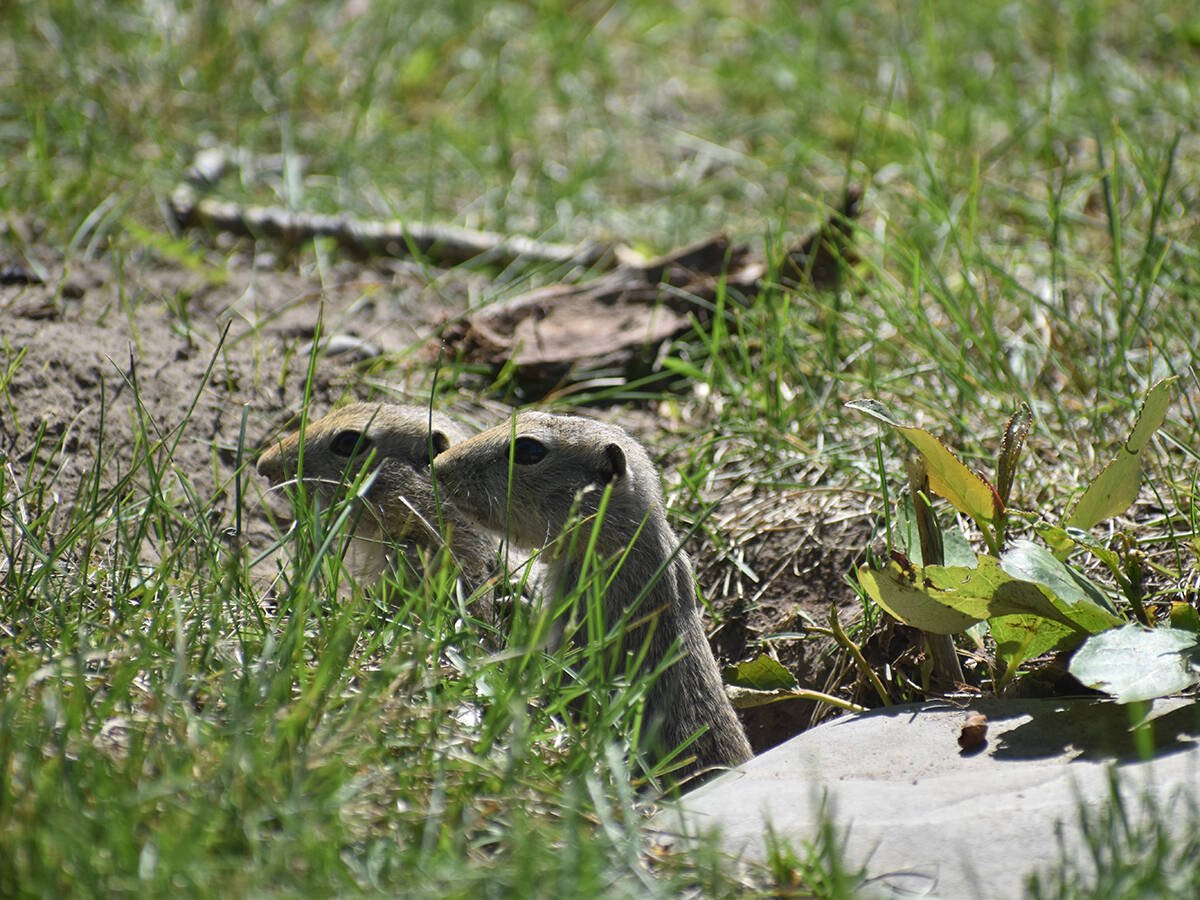Brown revolution?
Re: Oct.15 article “Green revolution has failings: Lewis.”
Stephen Lewis is right to be cautious about the Gates Foundation and Monsanto working together in Africa to feed the millions.
Once again, big chemical companies and producers (of genetically modified organisms) are coming through the back door to promote their own agenda.
Alliance for a Green Revolution in Africa will likely end up much like the oil industries that went to Africa. The oil companies got rich, raped Africa and took all the money home, while Africa is still poor and hungry.
Read Also

Rural officials hopeful strychnine use will resume
The Saskatchewan Association of Rural Municipalities is taking a verbal commitment from the federal agriculture minister on strychnine use as a good sign.
Go to their website and read between the lines. A few will get very rich on this program, off the backs of poor and uneducated farmers.
Monsanto has to quit giving that speech of feeding the world. We all know that Monsanto is purely profit driven. No one buys into that theory any more.
Really, who is Monsanto going to profit from in Africa? No one there can afford the food. And don’t throw around the term green while throwing around GM seeds and herbicides. It’s not working here and it won’t work there.
Trish Jordan, we will be questioning you.
– April Reeves,
Vancouver, B.C.
Flu vaccine
Officials say the majority of cases of swine flu have been mild and also that the tracking of the cases show the swine flu is spreading across Canada in the same pattern as regular, seasonal flu.
This must have been a crushing blow to the big pharmaceuticals, World Health Organization and public health officials, who had built a machine around an impending pandemic.
There’s a lot of money involved around the impending pandemic. It was stressed that this new strain could eventually infect two billion people. …
Pharmaceutical (companies) still need zillions of dollars required to continue paying off their victims. Have we forgotten that the last wonder drug, Vioxx, was pulled from the market in 2002 after contributing for five years to 28,785 heart attacks and sudden deaths, (according to the) Vaccination Risk Awareness Network….
It seems very perplexing to learn that more H1N1 shots may be required, arising from a finding that suggests that people vaccinated against seasonal flu are twice as likely to catch the swine flu. However, Dr. M. Joffe, an Alberta infectious disease doctor, claims that “people shouldn’t pay attention to flu studies that haven’t been published or properly reviewed.”
While big pharmaceuticals and WHO may have been trying to prevent another flu epidemic, there remains concern about a hidden agenda when they were able to develop, very quickly, a flu vaccine that, though never having been tested in humans before, could save us from a monstrous worldwide pandemic.
– Audrey Jensen,
Red Deer, Alta.
Our money
Across Canada, Conservative members of Parliament have been busy with photo-ops handing out cheques to groups and companies, always with smiles.
It seems to me that they should be grim-faced and apologetic for spending our grandchildrens’ money.
These MPs should be reminding citizens that the Harper government is headed for a deficit of $60 billion for the current year and as much as $150 billion in the next few years.
That means tax increases and program cuts – not a very encouraging future for our grandchildren.
– Frank Orosz,
Creston, B.C.
Grain growing
For many farmers, the 2009 crop year was the year of decision. Should he or she grow wheat, durum, barley or oats again?
Most have come to the conclusion that coarse grains no longer pay. With the prices at 1970s levels and inputs still high in comparison, the writing is still on the blackboard.
In relation to other crops such as lentils and canola, there are increasing demands and the prices are staying in line with production costs. …
Crops such as flax, canaryseed and mustard are still in the ballpark. However, they too have seen better times. We have seen the politics and questionable actions of Europe all but destroy the flax and mustard markets in recent weeks. …
It will be strange calling Canada the lentil or canola basket of the world. In the 1970s, we were noted as the breadbasket of the world and noted for quality and quantity.
If the trend keeps up, we may have to import wheat from China someday. Most say that if there is a shortage in wheat, those darn farmers will simply quit growing lentils and canola and grow wheat for the good of the country.
Think again.
If you want farmers to grow wheat, durum, barley and oats, then you will have to triple or quadruple the price. …
Does it not seem that every time politics gets involved in agriculture or food, it causes a wreck?
As we approach some critical years ahead, is it time to plan for our future. You know, like having enough to go around. …
I believe government should do a quick study on where we will be in five years.
This study should only take a month if they push it and so by spring planting 2010, solutions will be there, farmers will have input and a say in their futures and where their markets may be going or where they would like to see them go. …
– Bob Thomas,
Regina Beach, Sask.














